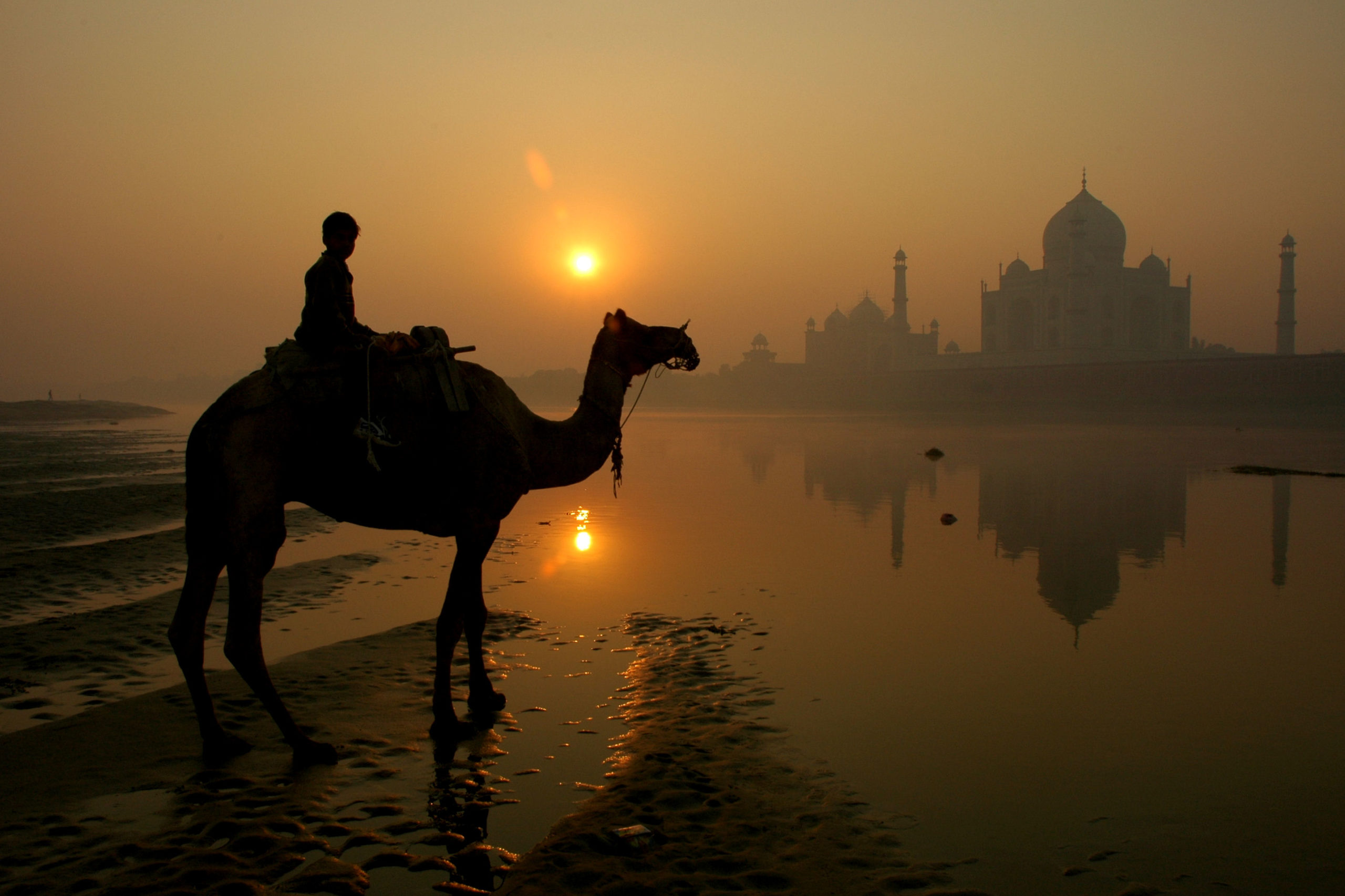
Colonisers have come and gone, but their footsteps are visible to this day. It’s been over 70 years since India gained independence, but we still live with the reminder of the colonial times. Have we woken up from our post colonial hangover yet?
Colonisers have come and gone, but their footsteps are visible to this day. It’s been over 70 years since India gained independence, but we still live with the reminder of the colonial times. Have we woken up from our post colonial hangover yet?

Image: Half Orc
‘The sun never sets on the British Empire’, they once used to say. For the longest of times, countries across the globe were in the clutches of the British. Based on L.J. Butler’s division on the basis of governance in the colonies, three tiers were described. The Dominions, essentially white settlements (Australia, Canada, New Zealand, to name a few) occupied the first tier, wherein they were given some leeway and independence. Known as the ‘jewel in the crown of the British Empire’, India was placed in the second tier, incessantly exploited and drained of her resources. The rest of the colonies, subjected to ‘indirect rule’, fell under the third tier (Miller, 2011). Since I hail from India, this article will be focused on the wounds and plasters of colonialism on India. The feeling of inferiority caused by the treatment under colonial rule, referred to as the ‘white man’s burden’, and being subjected to dehumanisation were certainly wounding to the Indian mind. At the time, some British establishments in India were guarded with a sign stating ‘No dogs or Indians.’ Dehumanisation of this sort is known to lead to exclusion, violence and in its most extreme form, genocide. People do not often associate the Indian colonial struggle with genocide, but Churchill was responsible for the Bengal Famine of 1943 which killed three million people. (Mukherjee, 2010). This feeling of injustice and resentment towards the way we were treated during the colonial years is felt across the generations. The current generations, children of Independent India, are all still affected by colonialism. For instance, in a simple, yet detrimental form, the role of English in our lives, which I will later elaborate on.
National identity is quite concretely defined with respect to the history, the present and the visions for the future. While there may be certain goals a country has in mind for its future, history places constraints on that (Parekh, 2006). India’s anti-colonial movement being a significant part of our history serves as an important role in defining our identity as well as our future. It is safe to say that the colonised are subjected to an identity crisis, as they grapple with old country traditions and modernisation, introduced by the colonisers. The intelligentsia, in particular, were instrumental in attempting to bridge this gap (Pannikar, 2003). This ‘cultural amnesia’, the disconnect from one’s culture and roots, was accompanied by inferiorization and loss of self-worth, which convinced the colonised that the culture of the colonisers was the path to being a member of a civilised society (deSouza, 2017). Thus, in the attempt to reduce the cultural gap between the colonisers and colonised, colonialism led to the adoption of a ‘forced identity’, as the colonisers tampered with or entirely rejected native cultural practices. The effect was the opposite though, and it ultimately left the colonised with a fractured identity which the generations today are still suffering from.
“Interviews of people from middle class families who were educated in english-medium schools felt that they lost their voices, felt distant from the new world it came with and had to change themselves and their values in order to fit in.”
One of the consequences of the colonial period was described by an Indian philosopher K.C. Bhattacharya as the ‘enslavement of mind’. He says that ‘slavery begins when one ceases to feel the evil and it deepens when the evil is accepted as a good’ (deSouza, 2017). This is exemplified by the uptake of the English language, which is inextricably linked to identity and culture. While the English language has ameliorated life for certain classes of Indian society (which is a meagre fraction when you look at how largely populated a country we are), it appears to have caused damage to our self worth, further splintered our society, and has caused alienation at multiple levels. (Faust & Nagar, 2001). This language that we have accepted into our system has irrefutably divided us, as it is now held as a symbol of status and power. When something is held as a symbol, it indicates that it has been unanimously accepted and perceived so by society. This goes to show the extent to which we have internalised the idea of English as a symbol of power and vernacular languages as a symbol of inferiority.
Gramsci’s speaks of how cultural hegemony can be most powerful and has a stronger influence when the colonised accept what has been imposed on them (Shetty, 1990). This is applicable here as we have adopted the language, and it is still present in our society. In fact, the English language is the only language that connects the nation (Sen, 2009). Yet, it is not the most prevalent language. It is the language of the elites, and is not accessible to a wider range of people. However, people educated in their vernacular languages — the native languages used in different states — are trying to open up those opportunities for their children, since English is viewed as a passport to moving up the social ladder. It has made more job opportunities accessible and opened up a more modern and developed world for people. This new world comes at quite a cost though. Interviews of people from middle class families who were educated in english-medium schools felt that they lost their voices, felt distant from the new world it came with and had to change themselves and their values in order to fit in. Ultimately, they also experienced alienation from their own families, who were more well-versed in the vernacular language. Those who were educated in english-medium schools also experienced a geographic divide. Their schools were seen as a symbol of a more modern world, while their homes and communities represented a more traditional space (Faust & Nagar, 2001). The distance between these spheres of life, social and geographical, highlights how there are parallel worlds within a nation. It also brings to light how language is so much more than just a medium of communication. It is practically a whole culture, which is an integral part of our identity. An influential psychiatrist and philosopher in the field of post-colonialism, Frantz Fanon who studied the French colonial rule of Algeria also discusses the depersonalisation — ‘a state in which one’s thoughts and feelings seem unreal or not to belong to oneself’— caused by the French language being forced onto the Algerians. A similar case of depersonalisation is seen in colonial India too. There was a disconnect with the culture linked to our native languages.
“It is this hangover that made Malcolm Muggeridge, a British journalist, say that the last true Englishman would be an Indian.”
Rabindranath Tagore, an Indian writer from the Indian anti-colonial movement period, sums up the fundamental role language plays in our lives. According to him, language is ‘not like an umbrella or an overcoat, that can be borrowed by unconscious or deliberate mistake; it is like the living skin itself’ (deSouza, 2017). Unfortunately, India sports a ragged and torn overcoat, with a few flashes of her skin.
Personally, I have to admit, I live with the reminder of colonialism everyday — from my recurrent conversations with people back home in English, to recollecting fond memories of growing up reading British authors, and to just being aware of how harshly divided my society is. Although I’ve known the influence it has had on me, it hit me harder when I came here. During one of our Spiegeloog meetings, a fellow editor told me that my English was almost native! While English is almost native to me, it really shouldn’t be. Although I grew up with two other native languages, one of which is my mother tongue, my competence in English is greater. While it’s not something I particularly take pride in, I like to believe that my awareness of how I’ve been influenced is helping me grapple with my post-colonial hangover. It is this hangover that made Malcolm Muggeridge, a British journalist, say that the last true Englishman would be an Indian.
References
– deSouza, P. R. (2017). The Recolonization of the Indian Mind. Revista Crítica de Ciências Sociais, 114, 137–160.
– Faust, D., & Nagar, R. (2001). Politics of Development in Postcolonial India: English-Medium Education and Social Fracturing. Economic and Political Weekly, 36(30), 2878–2883.
– Gendzier, I. (1976). Psychology and Colonialism: Some Observations. Middle East Journal, 30(4), 501–515.
– Kumar, K. (1989). Colonial Citizen as an Educational Ideal. Economic and Political Weekly, 24(4), PE45-PE51.
– Miller, William S. (2011). Independent Personality: National Identity Formation in Britain’s Dominions and India. Research Papers. Paper 93.
– Mukerjee, M. (2010). Churchill’s Secret War: The British Empire and the Ravaging of India during – World War II (1st ed.). New York, NY: Basic Books.
– Panikkar, K. N. (2003). Colonialism, Culture and Revivalism. Social Scientist, 31(1/2), 3.
– Parekh, B. (2006). Defining India’s Identity. India International Centre Quarterly, 33(1), 1-15.
– Sen, K. (2009). Post-Colonialism, Globalism, Nativism: Reinventing English in a Post-Colonial Space. In Kolig E., Angeles V., & Wong S. (Eds.), Identity in Crossroad Civilisations: Ethnicity, Nationalism and Globalism in Asia (pp. 115-132). Amsterdam: Amsterdam University Press.
– Shetty, S. (1990). College Literature, 17(2/3), 223-226.
‘The sun never sets on the British Empire’, they once used to say. For the longest of times, countries across the globe were in the clutches of the British. Based on L.J. Butler’s division on the basis of governance in the colonies, three tiers were described. The Dominions, essentially white settlements (Australia, Canada, New Zealand, to name a few) occupied the first tier, wherein they were given some leeway and independence. Known as the ‘jewel in the crown of the British Empire’, India was placed in the second tier, incessantly exploited and drained of her resources. The rest of the colonies, subjected to ‘indirect rule’, fell under the third tier (Miller, 2011). Since I hail from India, this article will be focused on the wounds and plasters of colonialism on India. The feeling of inferiority caused by the treatment under colonial rule, referred to as the ‘white man’s burden’, and being subjected to dehumanisation were certainly wounding to the Indian mind. At the time, some British establishments in India were guarded with a sign stating ‘No dogs or Indians.’ Dehumanisation of this sort is known to lead to exclusion, violence and in its most extreme form, genocide. People do not often associate the Indian colonial struggle with genocide, but Churchill was responsible for the Bengal Famine of 1943 which killed three million people. (Mukherjee, 2010). This feeling of injustice and resentment towards the way we were treated during the colonial years is felt across the generations. The current generations, children of Independent India, are all still affected by colonialism. For instance, in a simple, yet detrimental form, the role of English in our lives, which I will later elaborate on.
National identity is quite concretely defined with respect to the history, the present and the visions for the future. While there may be certain goals a country has in mind for its future, history places constraints on that (Parekh, 2006). India’s anti-colonial movement being a significant part of our history serves as an important role in defining our identity as well as our future. It is safe to say that the colonised are subjected to an identity crisis, as they grapple with old country traditions and modernisation, introduced by the colonisers. The intelligentsia, in particular, were instrumental in attempting to bridge this gap (Pannikar, 2003). This ‘cultural amnesia’, the disconnect from one’s culture and roots, was accompanied by inferiorization and loss of self-worth, which convinced the colonised that the culture of the colonisers was the path to being a member of a civilised society (deSouza, 2017). Thus, in the attempt to reduce the cultural gap between the colonisers and colonised, colonialism led to the adoption of a ‘forced identity’, as the colonisers tampered with or entirely rejected native cultural practices. The effect was the opposite though, and it ultimately left the colonised with a fractured identity which the generations today are still suffering from.
“Interviews of people from middle class families who were educated in english-medium schools felt that they lost their voices, felt distant from the new world it came with and had to change themselves and their values in order to fit in.”
One of the consequences of the colonial period was described by an Indian philosopher K.C. Bhattacharya as the ‘enslavement of mind’. He says that ‘slavery begins when one ceases to feel the evil and it deepens when the evil is accepted as a good’ (deSouza, 2017). This is exemplified by the uptake of the English language, which is inextricably linked to identity and culture. While the English language has ameliorated life for certain classes of Indian society (which is a meagre fraction when you look at how largely populated a country we are), it appears to have caused damage to our self worth, further splintered our society, and has caused alienation at multiple levels. (Faust & Nagar, 2001). This language that we have accepted into our system has irrefutably divided us, as it is now held as a symbol of status and power. When something is held as a symbol, it indicates that it has been unanimously accepted and perceived so by society. This goes to show the extent to which we have internalised the idea of English as a symbol of power and vernacular languages as a symbol of inferiority.
Gramsci’s speaks of how cultural hegemony can be most powerful and has a stronger influence when the colonised accept what has been imposed on them (Shetty, 1990). This is applicable here as we have adopted the language, and it is still present in our society. In fact, the English language is the only language that connects the nation (Sen, 2009). Yet, it is not the most prevalent language. It is the language of the elites, and is not accessible to a wider range of people. However, people educated in their vernacular languages — the native languages used in different states — are trying to open up those opportunities for their children, since English is viewed as a passport to moving up the social ladder. It has made more job opportunities accessible and opened up a more modern and developed world for people. This new world comes at quite a cost though. Interviews of people from middle class families who were educated in english-medium schools felt that they lost their voices, felt distant from the new world it came with and had to change themselves and their values in order to fit in. Ultimately, they also experienced alienation from their own families, who were more well-versed in the vernacular language. Those who were educated in english-medium schools also experienced a geographic divide. Their schools were seen as a symbol of a more modern world, while their homes and communities represented a more traditional space (Faust & Nagar, 2001). The distance between these spheres of life, social and geographical, highlights how there are parallel worlds within a nation. It also brings to light how language is so much more than just a medium of communication. It is practically a whole culture, which is an integral part of our identity. An influential psychiatrist and philosopher in the field of post-colonialism, Frantz Fanon who studied the French colonial rule of Algeria also discusses the depersonalisation — ‘a state in which one’s thoughts and feelings seem unreal or not to belong to oneself’— caused by the French language being forced onto the Algerians. A similar case of depersonalisation is seen in colonial India too. There was a disconnect with the culture linked to our native languages.
“It is this hangover that made Malcolm Muggeridge, a British journalist, say that the last true Englishman would be an Indian.”
Rabindranath Tagore, an Indian writer from the Indian anti-colonial movement period, sums up the fundamental role language plays in our lives. According to him, language is ‘not like an umbrella or an overcoat, that can be borrowed by unconscious or deliberate mistake; it is like the living skin itself’ (deSouza, 2017). Unfortunately, India sports a ragged and torn overcoat, with a few flashes of her skin.
Personally, I have to admit, I live with the reminder of colonialism everyday — from my recurrent conversations with people back home in English, to recollecting fond memories of growing up reading British authors, and to just being aware of how harshly divided my society is. Although I’ve known the influence it has had on me, it hit me harder when I came here. During one of our Spiegeloog meetings, a fellow editor told me that my English was almost native! While English is almost native to me, it really shouldn’t be. Although I grew up with two other native languages, one of which is my mother tongue, my competence in English is greater. While it’s not something I particularly take pride in, I like to believe that my awareness of how I’ve been influenced is helping me grapple with my post-colonial hangover. It is this hangover that made Malcolm Muggeridge, a British journalist, say that the last true Englishman would be an Indian.



